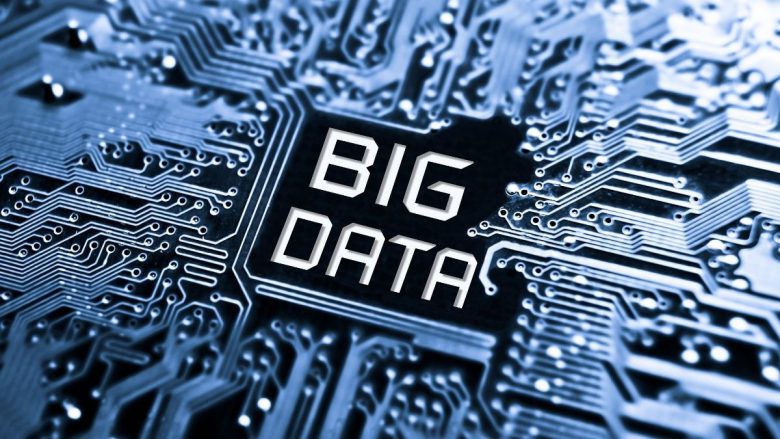
Data management via Big Data technology and tools is a topic of interest at the enterprise and state levels. Today, Big Data technology is primarily used by large corporations (about 60 percent of the market). However, the number of medium and small businesses incorporating this technology is increasing year after year.
By 2025, Big Data analysis and management will no longer be the exclusive domain of large corporations. Big Data technology will continue to help businesses work more efficiently and optimize internal processes in the coming years.
What can you learn from those who have already integrated the technology into their workflows? First, let’s look at some of the most promising Big Data success stories.
Big Data as a New Business Development Driver
The amount of information produced in the age of digital technologies and social networks is increasing at an exponential rate. If a company already has a website and an app, it has data that can be analyzed. But how will it benefit the company?
This question was first posed by large corporations seven years ago. However, in 2015, only about 17% of companies worldwide used Big Data in their operations. IT firms, banks, and telecommunications companies were among the first to embrace Big Data. It is, however, unsurprising. These industries generate the greatest amount of data. Banks collect data through transactions, telecommunications collect data through geodata, and search engines use query histories.
Big Data is being used in a variety of industries in the United States. Meanwhile, demand for this technology is slightly lower in Europe and Asia.
In the last five years, businesses have increased their use of Big Data threefold. Furthermore, the application will expand. According to Statista, the global Big Data market will be worth $103 billion by 2027, more than double what it was in 2020.
Big Data Trends, Tendencies, and Impact Across Industries
Companies that disregard Big Data technology risk losing money. As a result, this fact explains the growing interest in this technology. For example, Caterpillar, a leading manufacturer of specialized equipment, admitted that its distributors lost approximately $15 billion simply because they did not implement Big Data technologies. Caterpillar, for example, has over 3.5 million vehicles outfitted with sensors that collect data on operating conditions. This information helps owners optimize the use of their equipment and manage maintenance costs.
Lost profits are frequently manifested as lost customers or missed optimization. Businesses are now focusing on developing internal Big Data expertise. As a result, a thorough understanding of Big Data’s impact on processes is assumed.
Investing in Big Data analysis is becoming more common. Companies that already use Big Data analytics will continue to expand the number of Big Data projects in the coming years.
The amount spent on Big Data analytics is determined by the industry domain. Telecom companies, for example, pay millions of dollars to use this technology. This is because telecommunications companies are increasingly relying on servers to store and process data. It also contributes to data security and confidentiality.
Big Data solutions for businesses vary depending on the type of data collected and the challenges addressed. Let’s look at some excellent examples.
1. Big Data in eCommerce
Prior to the introduction of personalization, marketers relied on surveys and sales analysis to ascertain customer needs. However, the results of this method are hardly comparable to reality.
In 2018, H&M experienced ten consecutive quarters of declining profit, putting the company’s survival in jeopardy. Big Data algorithms were used to stabilize the situation, allowing the store to remove 40% of its inventory without lowering sales.
Retailers receive a massive amount of data that can be used for customer communication and internal process optimization. The Walmart network, for example, employs Big Data technologies to process 2.5 petabytes of data every hour.
CRM marketing is giving way to predictive analytics in modern retail.
2. Big Data in Healthcare
The potential for medical data analysis is enormous. It is possible to use Big Data technology in healthcare to:
- Lower treatment costs;
- Forecast epidemic breakouts;
- Provide early screening for diseases;
- Improve the overall quality of life;
- Introduce modern treatment methods into practice.
Express Scripts, the largest independent pharmacy benefits manager and one of the largest pharmacies in the United States, processes millions of prescriptions for home-delivered and retail pharmacies each year. Their knowledge of individual patients has grown to the point where they will soon be able to notify medical personnel of drug side effects long before the drug is even prescribed to a patient.
This will result in significant beneficial changes in the health system of the nation:
- Before prescribing pain relievers, doctors will assess the patient’s risk of addiction. In such cases, a different treatment plan or closer monitoring of drug consumption will be possible.
- Prescriptions, physiology, and other medical data analysis will aid in identifying the development of a chronic illness or an illness that has not yet been adequately diagnosed.
- Analyzing patient compliance with doctor’s orders after discharge will help predict the likelihood of readmission over the next 90 days and take appropriate preventive measures.
3. Big Data in Telecommunication
Every day, telecommunications companies create solutions that attract a large number of users, creating a large field for fraud. The most common types of fraud are illegal access, authorization, fake profiles, cloning, and behavioral fraud. Furthermore, fraud has a direct impact on user relationships. As a result, systems, tools, and methods for detecting fraud are widely used in the telecommunications industry.
China Mobile, the world’s largest mobile operator in terms of subscribers, has developed the Sky Shield system, which is based on Big Data analysis and machine learning technology. It is capable of detecting fraudster-specific phrases and intercepting spam mailings and phone calls. To train the algorithm, developers used a large database of fraud cases provided by police departments.
The system can also identify and alert user groups that are particularly prone to spam. Furthermore, China Mobile claims that as the Sky Shield is used, the system’s accuracy improves.
4. Big Data Potential for Web Application Development
Big Data can be used to optimize a company’s internal processes by incorporating it into existing corporate mobile and web applications. For example, UPS, the largest supply chain management company in the United States, delivers more than 16.9 million goods per day to over 220 countries. It is unable to function without Big Data solutions.
The company has implemented the Orion application to optimize routes and reduce costs. It is an acronym that stands for On-road Integrated Optimization and Navigation. The app is the fleet management web application for the company. The system generates optimal routes in real-time using massive cartographic data, data on points of departure and arrival, sizes, and required delivery times of goods.
As a result, UPS saves approximately 6 million liters of fuel per year, reduces carbon emissions into the atmosphere by 13,000 tons per year, and improves delivery times.
5. Big Data Benefits for Education
Skillsoft, an American leader in corporate educational programs, collaborated with IBM to tailor their experience, increase engagement, and improve learning outcomes directly through the program and email newsletters.
User activity data was used to monitor engagement and determine the best time and channel of communication to capture users’ attention. Furthermore, a recommendation system for educational content was created based on the preferences of the users (84 percent of users rated the recommendations as relevant). Furthermore, the company incorporated data-driven visualization tools that are tailored to each individual user in the system.
6. Advantages of Big Data for Marketing
BikeBerry, an eCommerce store for bicycles and motorcycles, has implemented sophisticated machine learning algorithms and statistical models to track and predict shopping behavior. The collected data on purchase history, demographic, and behavioral information, combined with the technologies employed by the company, enabled the identification and utilization of behavioral patterns on the BikeBerry website.
As a result, the store was able to recommend the most relevant products to customers and began making targeted discount offers only to those customers who actually needed them, which aided in:
- Increase sales by 133%;
- Improve user activity by 200%;
- Double the number of returning customers;
- Increase the average check of such customers by 30%.
7. Big Data in Transport
Union Pacific Railroad, the largest railway corporation in the United States, has used Big Data to strengthen its risk management system, resulting in a 75% reduction in train derailments. The company gathered data from thermometers, acoustic and visual sensors on each locomotive, weather information, brake system status, and GPS location of trains.
Union Pacific was able to develop predictive models based on the data, which allow for the monitoring of the condition of the wheels and the railway, as well as the prediction of train derailments several days or even weeks before an incident.
Big Data technology enabled rapid resolution of such issues, avoiding train damage and delays.
8. Big Data Trends in Public Administration
Big Data analysis is used by governments to make decisions in areas such as healthcare, employment, economic regulation, crime and security, and emergency response.
The Los Angeles Police Department could use a Big Data solution to obtain the most likely terms and areas (with great precision, about 50 square meters) of various types of crimes and dispatch additional police forces to prevent them. The LAPD’s system processes historical data on the time, type, and location of crime using clustering algorithms in space and time.
In this case, no personal information about people in the city or information about their location is used, allowing for compliance with privacy regulations. Furthermore, the decrease in crime has resulted in financial savings for law enforcement, the judiciary, and the correctional system.
9. Impact of Big Data on Agriculture
According to data analysts, the most promising applications of Big Data are in conservative industries such as agriculture. This is due to the fact that big data will aid in the reduction of both labor and resources in this industry.
Global food demand is expected to nearly double by 2050, putting pressure on farmers to increase output. In this case, Big Data refers to data collected by soil sensors, tractors equipped with GPS trackers, and local meteorological channels. Comprehensive data analysis enables farmers to manage seeds, fertilizers, and pesticides. Furthermore, it contributes to increased productivity.
10. Big Data Benefits for the Mining Industry
Companies in the mining industry are facing increased competition as the environmental component of production becomes more stringent. As a result, the trend necessitates that businesses use resources as sparingly as possible.
Severstal, a mining company, has implemented a system to monitor electricity consumption based on the Internet of Things and Big Data analytics. According to the company, the solution can significantly improve the accuracy of energy consumption forecasting (by 20-25 percent monthly) and save $10 million per year by reducing fines, optimizing procurement, and combating electricity theft.
Conclusion
Big Data has been used by businesses for quite some time. The flow of data, on the other hand, has never been as intense as it is now. Today, social networks, online services, and applications can all be linked. Businesses can get a complete picture of potential customers at the same time.
Many people refer to Big Data as the “new gold.” According to data analysts, Big Data will soon become the primary decision-making tool for every business. This technology will benefit both small start-ups and large international organizations.
Learn more from technology and read What Are the Most Common Reasons for Data Breach?


